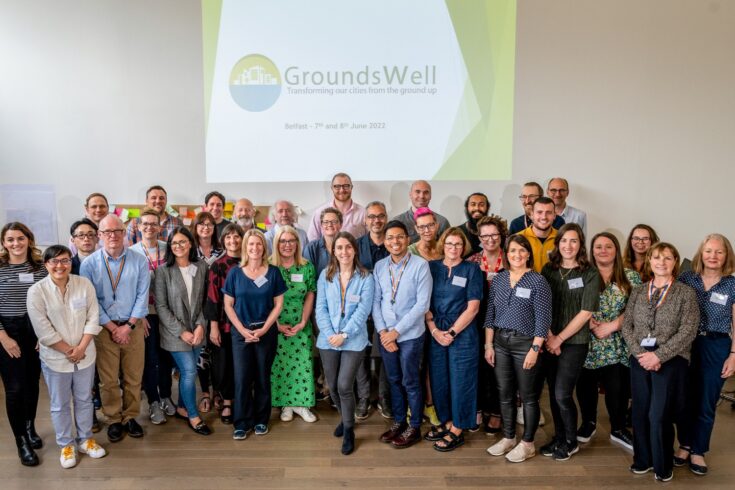Prevention research is all about finding ways to prevent disease and promote wellbeing.
It includes the development of vaccines and preventative medicines, like the COVID-19 Oxford vaccine and a daily pill for preventing HIV infection. As well as behavioural and environmental interventions, such as urban planning and improving the quality of children’s diets.
What are the benefits?
The benefits of prevention are clear. As well as keeping people healthier for longer we can reduce the costs associated with ill health, including urgent and long-term healthcare costs, increased sick leave, and reduced productivity.
Much of prevention research funded in the UK is focused on vaccine research and preventing the spread of infectious diseases. The Medical Research Council (MRC) has found that a smaller amount of research is being carried out to study the prevention of non-communicable diseases (NCDs) (PDF, 2.2MB).
These are non-infectious health conditions that can’t be spread from person to person, including:
- cancer
- cardiovascular disease
- diabetes
- chronic respiratory diseases
- mental health conditions
- neurological disorders.
How are we supporting research to prevent non-infectious diseases?
Prevention research cuts across disciplines traditionally supported by different funders. So, in 2017, MRC came together with 11 other funders to form the UKPRP.
Through this partnership, UK research councils, charities, and government departments are funding research on how to prevent NCDs and health inequalities.
Who is involved?
To develop effective interventions, we encourage UKPRP consortia to adopt an interdisciplinary approach, bringing together researchers not typically engaged in disease prevention research.
These include:
- urban planners
- economists
- psychologists.
To ensure their findings are relevant and implementable, UKPRP researchers also co-develop their projects with users of research from:
- local and national government
- industry
- the third sector
- the public.
UKPRP has a lively Community of Practice, a forum for researchers to share ideas, opportunities and challenges across the networks and consortia. The community is developing shared practice in areas such as:
- consortium and network management
- impact-oriented research
- commercial sector interactions.
What research is being funded?
UKPRP is supporting seven interdisciplinary research consortia, spanning a range of factors that affect health. They are:
- ActEarly, aiming to improve the life chances of children by focusing on improving the environments that influence their health
- GroundsWell, which is investigating the contribution of urban green and blue spaces to preventing NCDs and reducing health inequalities
- Kailo, which will develop a framework that supports the co-design of strategies to address the underlying drivers of poor mental health
- SIPHER, looking at developing systems-based economic evaluation methods for assessing the effectiveness, costs and benefits of policy measures implemented in different sectors
- SPECTRUM, investigating the commercial determinants of health inequalities, focusing on tobacco, alcohol, and unhealthy food
- TRUUD, focusing on urban planning and development systems with a view to embedding the prevention of risk factors for NCDs and health inequalities into decision making on planning
- VISION, looking at ways to reduce the violence that harms health by improving the measurement and analysis of data on violence.
The partnership also funds four networks, which are building interdisciplinary communities around broad challenges in the prevention of NCDs. These networks go by the names of:
- GENIUS: focusing on the food system to influence the quality of children’s diets
- MatCHNet: which is linking data across the four UK nations to assess the impact of national policies on maternal and child health
- PETRA: aiming to explore the relationships between trade policy and NCDs
- PHASE: using agent-based models to investigate the independent and interacting processes that result in NCDs and health inequalities.
How can I find out more about UKPRP?
We want to make sure that the outputs of UKPRP reach a broad audience of policy makers, practitioners, and the public. If you’d like to find out more, please:
- contact the secretariat at ukprp@mrc.ukri.org
- visit the UKPRP website
- follow UKPRP on Twitter.
Top image: GroundsWell Consortium, first face to face meeting in Belfast, June 2022. Credit: Queen’s University of Belfast




